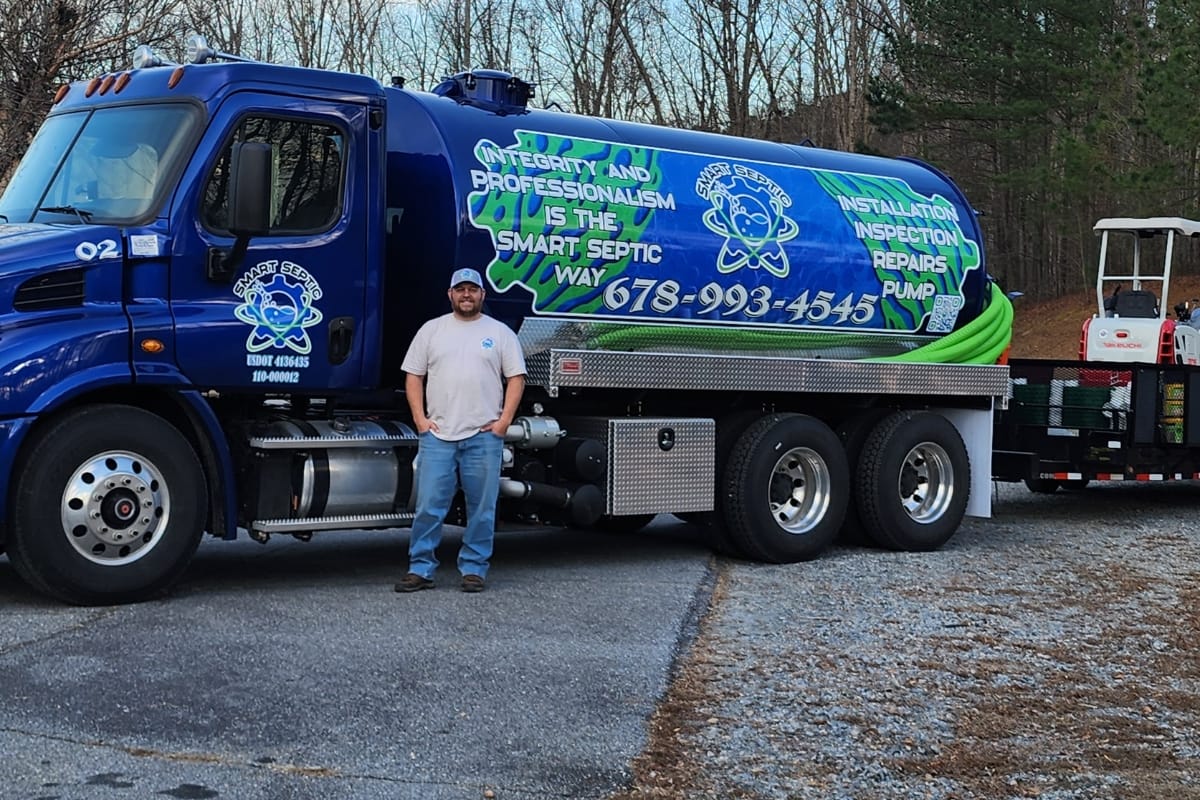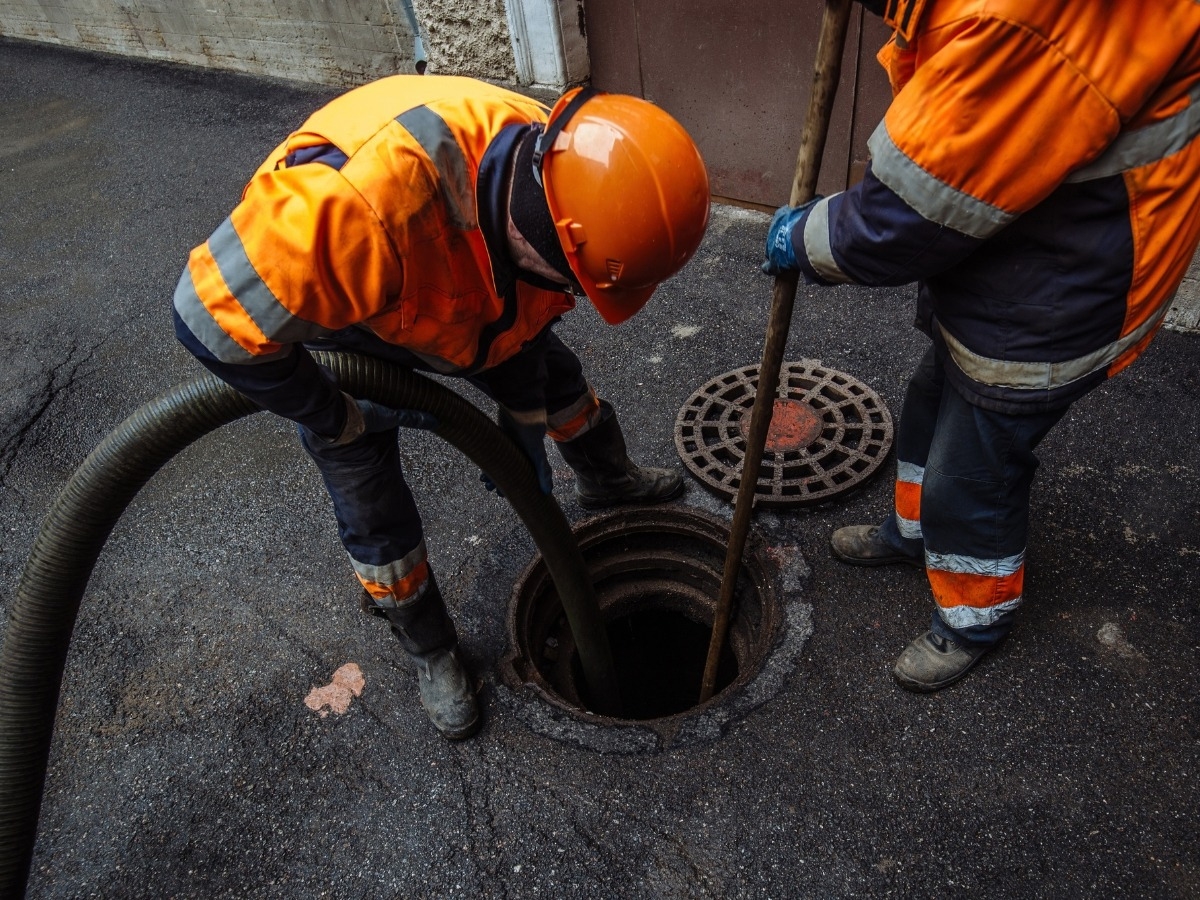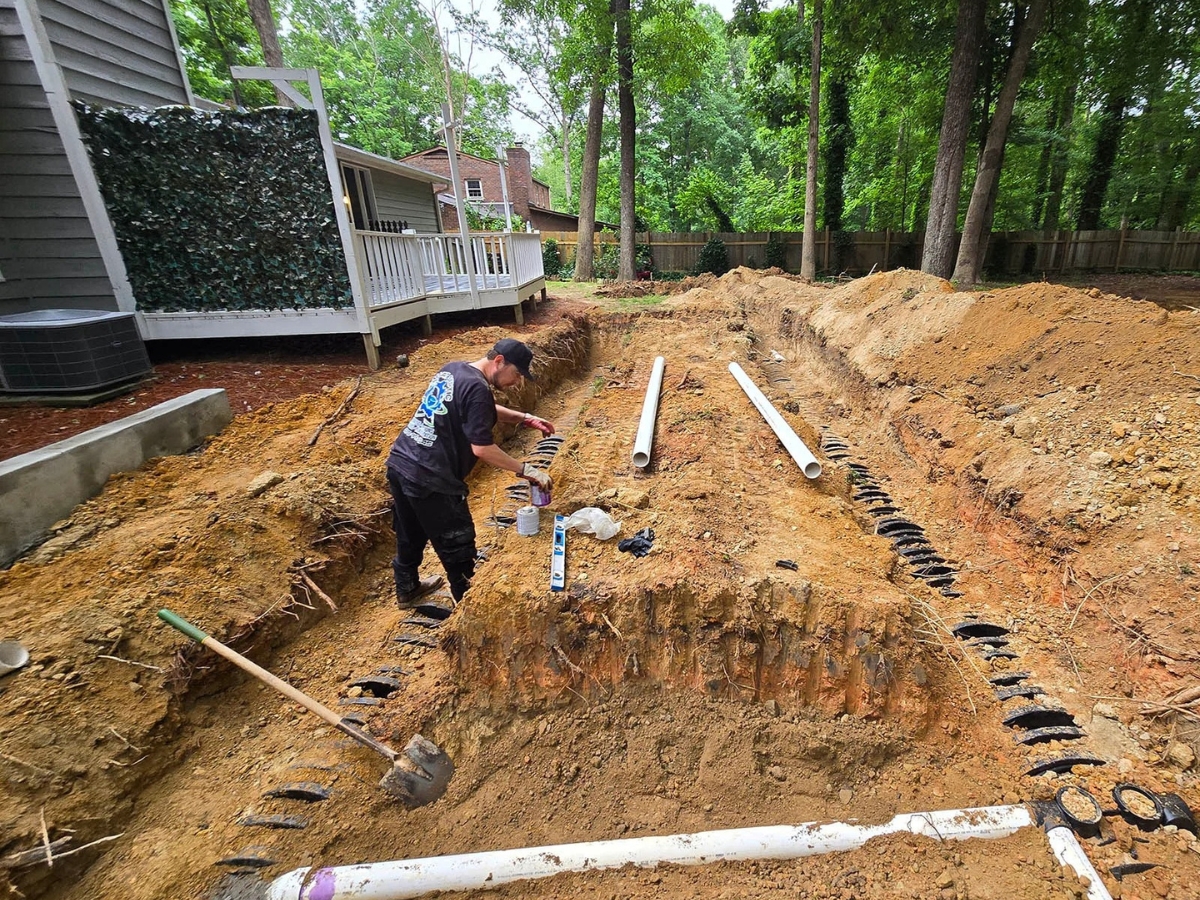In Kennesaw, GA, where many homes rely on septic systems, misinformation often leads to costly mistakes and unnecessary worry. From the belief that additives eliminate the need for pumping to the myth that septic systems are maintenance-free, these misconceptions can compromise the health of your system and your property. Understanding how septic systems truly work is essential for protecting your investment and avoiding preventable issues. In this article, we’ll debunk some of the most common septic system myths specific to Kennesaw residents and provide clear, practical guidance for proper care and maintenance.
Septic System Myths Busted: What Homeowners Get Wrong
What Are the Most Common Septic System Myths in Kennesaw, GA?
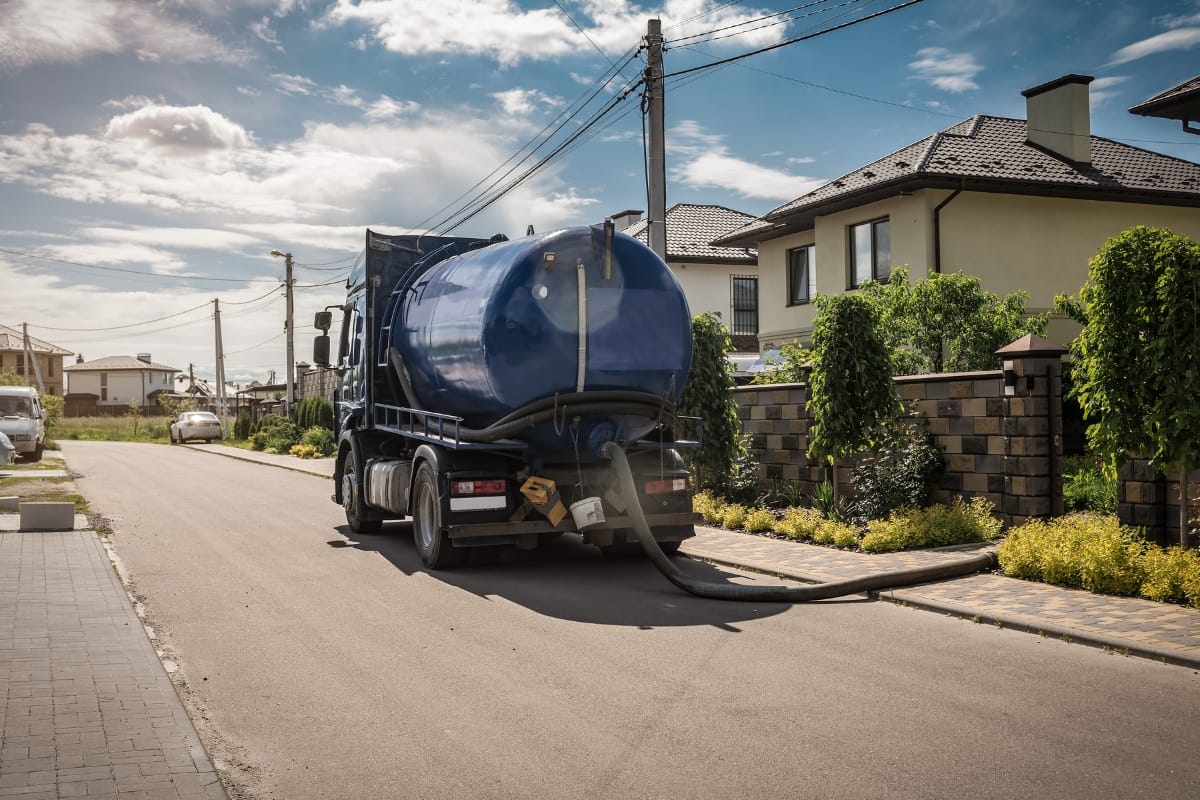
Septic systems are a key part of many homes in Kennesaw, but there’s still a lot of confusion surrounding how they work and what kind of maintenance they really need. Some of this confusion stems from outdated advice or generalizations that don’t take local conditions into account. When homeowners rely on myths instead of facts, they risk damaging their systems or facing expensive repairs.
Myth: Septic Systems Don’t Need Maintenance
One of the most common misconceptions is that septic systems are maintenance-free. In reality, every system needs regular upkeep to stay functional. Over time, solids collect at the bottom of the tank, forming sludge that doesn’t break down naturally. Without regular pumping, typically every three to five years, that sludge can build up and lead to clogs, backups, or system failure.
The idea that once a septic tank is installed it can be forgotten is misleading. Routine inspections, scheduled pumping, and being mindful of what goes down the drain all play a role in system longevity. Kennesaw’s climate and soil conditions can affect how well systems function, especially in areas where roots from nearby trees may interfere with the drain field. Preventive maintenance helps avoid more serious issues later on.
Myth: You Can Flush Anything If You Have a Septic System
Another harmful belief is that everything flushed or poured down the drain just disappears. Septic systems are designed to process wastewater and organic material, not synthetic or non-biodegradable items. Flushing things like wipes, diapers, and paper towels—even if labeled “flushable”—can quickly lead to blockages.
Similarly, pouring grease, harsh chemicals, or large amounts of bleach down the drain disrupts the natural bacteria that help break down waste inside the tank. These products can interfere with the biological processes that keep a septic system running efficiently. Using gentle, biodegradable cleaning products and limiting non-essential waste can go a long way in avoiding unnecessary damage.
Myth: Septic Systems Last Forever
Some homeowners assume that a septic system will last a lifetime, but that’s rarely the case. Most systems have a life expectancy of 20 to 40 years depending on factors like soil type, usage patterns, and how well the system was installed. Over time, key components such as baffles and distribution boxes can break down. Without attention, small issues can grow into serious structural problems.
Regular checkups can catch early signs of wear, such as cracks or signs of saturation in the drain field. Addressing these concerns promptly can add years to the life of the system and protect the surrounding environment from contamination.
Staying informed and committed to ongoing maintenance is the best way to keep a septic system running smoothly in Kennesaw. Avoiding common myths and taking a proactive approach helps homeowners avoid costly repairs and protects both property and public health.
How Does Kennesaw’s Soil and Climate Affect Septic System Performance?

Septic systems don’t operate in a vacuum. Their long-term performance depends heavily on local environmental factors, particularly soil composition and climate. In Kennesaw, Georgia, these two elements are key in determining how well a septic system functions and how often it needs attention.
Understanding Local Soil Conditions
The type of soil found in a given yard directly affects how wastewater is treated once it leaves the septic tank. Some areas of Kennesaw have clay-rich soils that retain water and drain poorly. In these cases, effluent tends to sit near the surface, creating a risk of system backups or even surface pooling. On the other end of the spectrum, sandy soils can drain too quickly. When this happens, wastewater may pass through the drain field without adequate treatment, which can lead to groundwater contamination.
The best-performing septic systems are designed with these soil conditions in mind. Before installation, it’s important to have the soil tested to determine its texture and permeability. This helps ensure the system is designed to match the site, reducing the risk of failure and the need for early repairs.
How Weather Impacts Septic System Health
In addition to soil, Kennesaw’s weather patterns play a role in how well a septic system holds up over time. Hot summers can speed up evaporation in the drain field, drying out the soil and potentially damaging the natural bacterial activity inside the tank. This bacterial activity is essential for breaking down waste, and any disruption can impact system performance.
Cold winters present their own challenges. If temperatures drop too low and a system isn’t properly insulated, parts of it may freeze. Frozen lines or tanks can lead to blockages, slow drainage, or even cracked components. Seasonal transitions with fluctuating temperatures can also create expansion and contraction in the soil, putting stress on underground components.
Another concern in the region is heavy rainfall. When the ground becomes saturated with water, the drain field may lose its ability to absorb effluent properly. This can cause untreated wastewater to rise to the surface or back up into the home. Drought, while less dramatic, can also be problematic by drying out soil, which may crack and shift over time, disrupting the drainage process.
Ongoing Maintenance Matters
Because Kennesaw has such a range of soil types and seasonal conditions, septic systems in the area require regular maintenance to function efficiently. Even a well-designed system can fail if not maintained properly. Homeowners should stay proactive by scheduling regular inspections and cleanings, especially following extreme weather. Watching for signs like slow drains, gurgling sounds, or soggy ground can also help catch problems early.
With the right care and attention to local conditions, most septic systems in Kennesaw can last for decades without major issues. Understanding how soil and climate affect performance is a critical first step in keeping everything running smoothly.
What Are the Truths About Septic System Maintenance and Inspections?
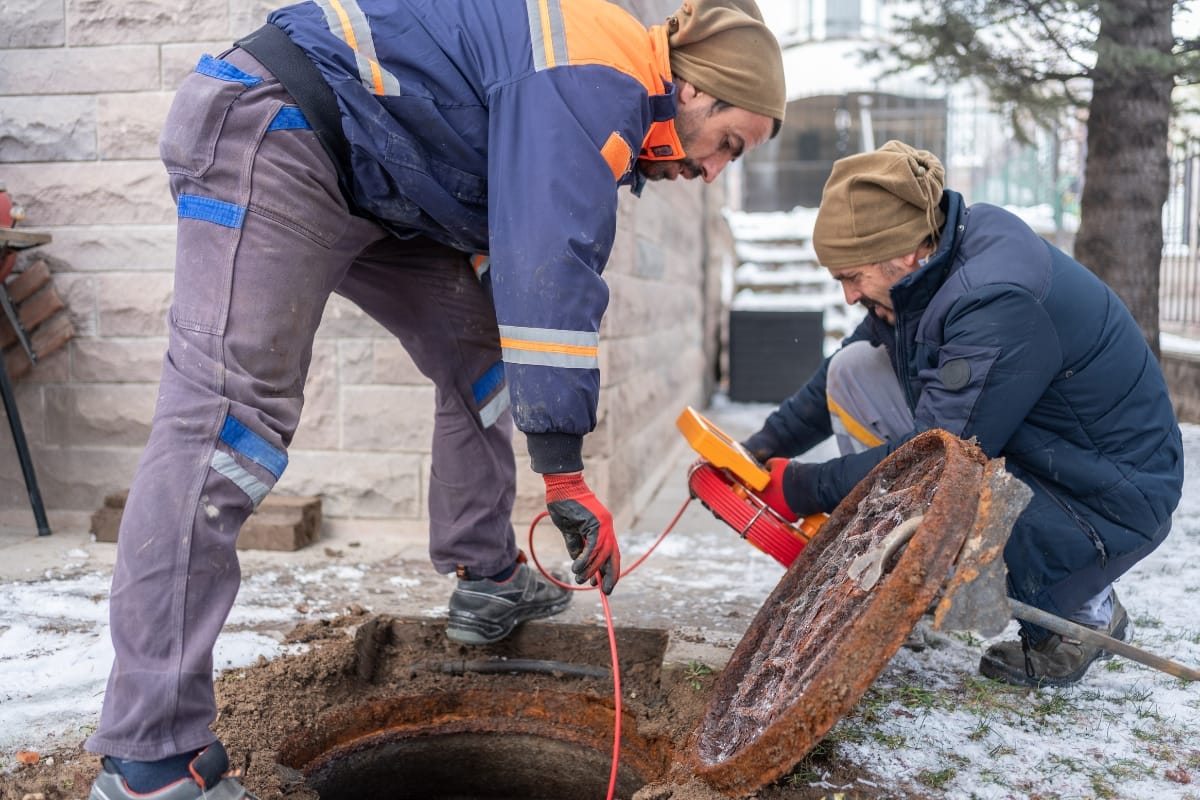
Keeping a septic system in working order requires consistent attention. While it’s easy to overlook what happens underground, neglect can lead to serious and expensive problems. In places like Kennesaw, where soil and weather conditions vary, regular inspections and maintenance are essential. Understanding the practical side of septic system care helps homeowners avoid costly repairs and extend the life of their systems.
Inspection Frequency and What to Expect
Most experts recommend having your septic system inspected at least every three years. In households with higher usage or systems located in areas with clay-heavy or poorly draining soil, more frequent inspections may be needed. These inspections involve checking tank levels, assessing the condition of the tank itself, and evaluating the health of the drain field. Inspectors look for signs of buildup, cracks, or early-stage blockages that might not yet cause visible issues but could lead to bigger problems if left unaddressed.
Inspections are not just about looking at the tank. A complete check includes measuring sludge and scum levels, inspecting the inlet and outlet pipes, and confirming that wastewater is moving through the system as it should. Drain field performance is also evaluated to make sure water is not backing up or surfacing in the yard. These early assessments help catch problems before they require extensive repairs or replacement.
Why Pumping Matters
Routine pumping is one of the most important aspects of septic system care. As solids settle in the tank, they form layers of sludge and scum that gradually reduce the system’s capacity. If not removed, this buildup can clog the pipes and overflow into the drain field, leading to system failure. Most households in Kennesaw benefit from pumping their tanks every three to five years, although frequency may vary depending on household size, water usage, and tank capacity.
Pumping does more than clear the tank. It also gives professionals a chance to spot issues that may not be visible during regular inspections, such as damaged baffles, signs of root intrusion, or structural deterioration. Performing this maintenance on schedule not only helps the system work more efficiently but also reduces the risk of emergency repairs.
DIY vs. Professional Maintenance
While homeowners can take steps to protect their system, like minimizing water usage and avoiding flushing non-degradable materials, full maintenance should be left to licensed professionals. Septic systems rely on a balance of bacteria to break down waste, and using harsh chemicals or improper cleaning products can disrupt this balance.
Homeowners may not have the tools or experience to assess problems accurately. Misjudging a tank’s fill level or applying the wrong solution can lead to serious damage. Trained technicians have the knowledge to properly inspect, clean, and repair these systems while following local regulations and safety guidelines.
Taking a proactive approach to septic system care can prevent major problems. With consistent inspections and timely pumping, systems in Kennesaw can operate smoothly for decades. Avoiding shortcuts and investing in regular maintenance is the best way to protect both your home and the surrounding environment.
Debunking Common Septic System Myths for Kennesaw Homeowners
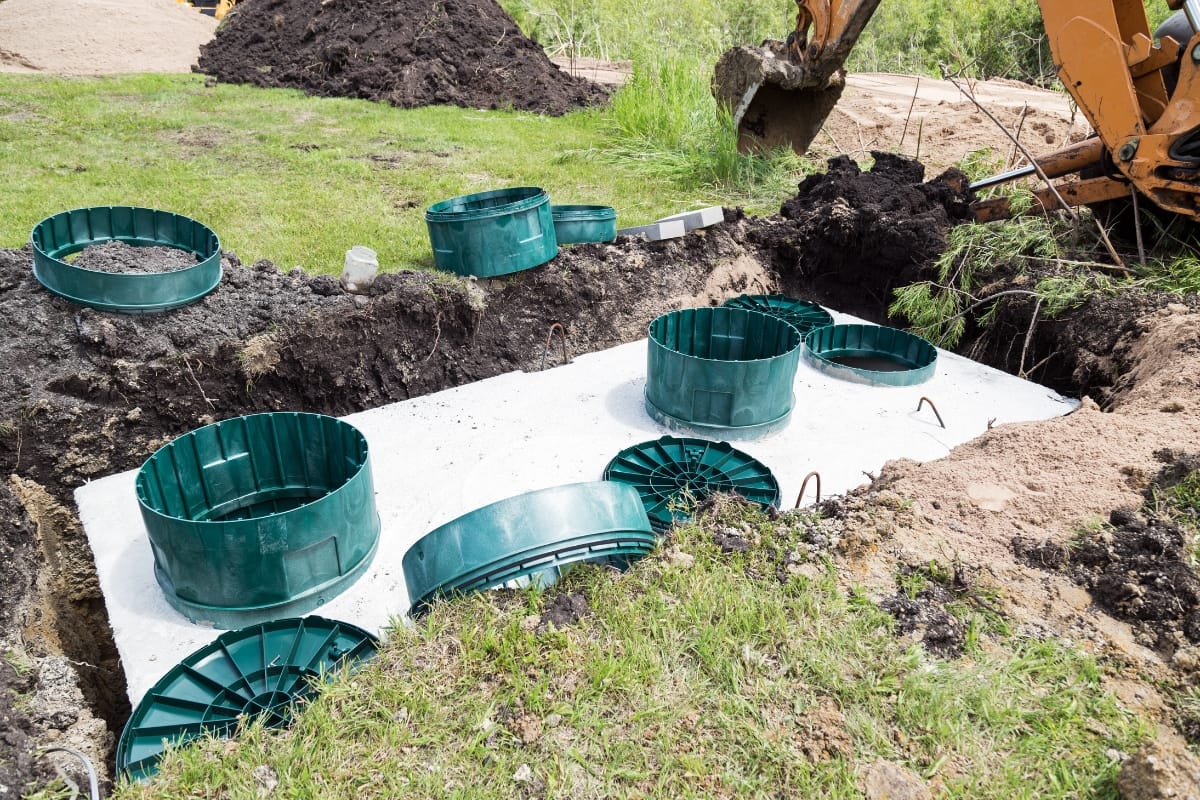
Homeowners in Kennesaw often hear conflicting advice when it comes to septic system care. Some of this information may sound convenient, but following bad advice can lead to major system failures and costly repairs. Knowing which common myths to avoid can help protect your system and save you time and money in the long run.
Is It Cheaper to Ignore Septic Repairs Until They Become Severe?
Some believe that putting off repairs will save money, especially if the issue seems minor. In reality, small problems tend to grow quickly. A small crack or slow leak in a septic tank can eventually result in widespread system failure. If untreated, issues like these can affect the drain field and surrounding soil, leading to full system replacement and potential contamination of nearby groundwater. The longer you wait, the more expensive the solution becomes. Regular inspections and timely repairs help prevent these larger problems from developing.
Are All Septic Systems Installed the Same Way in Kennesaw?
Another common misconception is that every septic system is installed the same way. While the basic idea of a septic tank and drain field is consistent, how that system is designed and installed can vary significantly depending on the property. Soil type, property slope, water table height, and local regulations all play a role in shaping a system that will function properly.
For example, clay-heavy soils may require larger drain fields or additional drainage components, while sandy soils need systems that prevent effluent from moving too quickly. Assuming that a one-size-fits-all system will work anywhere can lead to poor performance or early failure. Tailoring the installation to the specific conditions of the property is the only way to ensure long-term success.
Can Newer Septic Technologies Eliminate All Problems?
With newer septic technologies available, it’s easy to believe that routine care is no longer necessary. While modern systems are designed for better efficiency and environmental performance, they still require regular maintenance. Systems like aerobic treatment units or advanced filtration setups can reduce odors and improve waste breakdown, but they are not self-sustaining. In fact, these systems often include mechanical parts or electrical components that need routine checks and servicing.
Neglecting maintenance on these systems can lead to performance issues just as easily as with older models. Filters may clog, pumps can fail, and even upgraded drain fields will eventually develop problems if ignored. Homeowners still need to schedule inspections, pump the tank regularly, and stay informed about how their particular system operates.
Avoiding these myths and replacing them with practical habits will go a long way in protecting your home’s septic system. In the end, understanding how your system works and keeping up with basic care is far more cost-effective than dealing with a major repair or replacement down the road.
How Can Homeowners Identify and Prevent Septic System Problems Early?
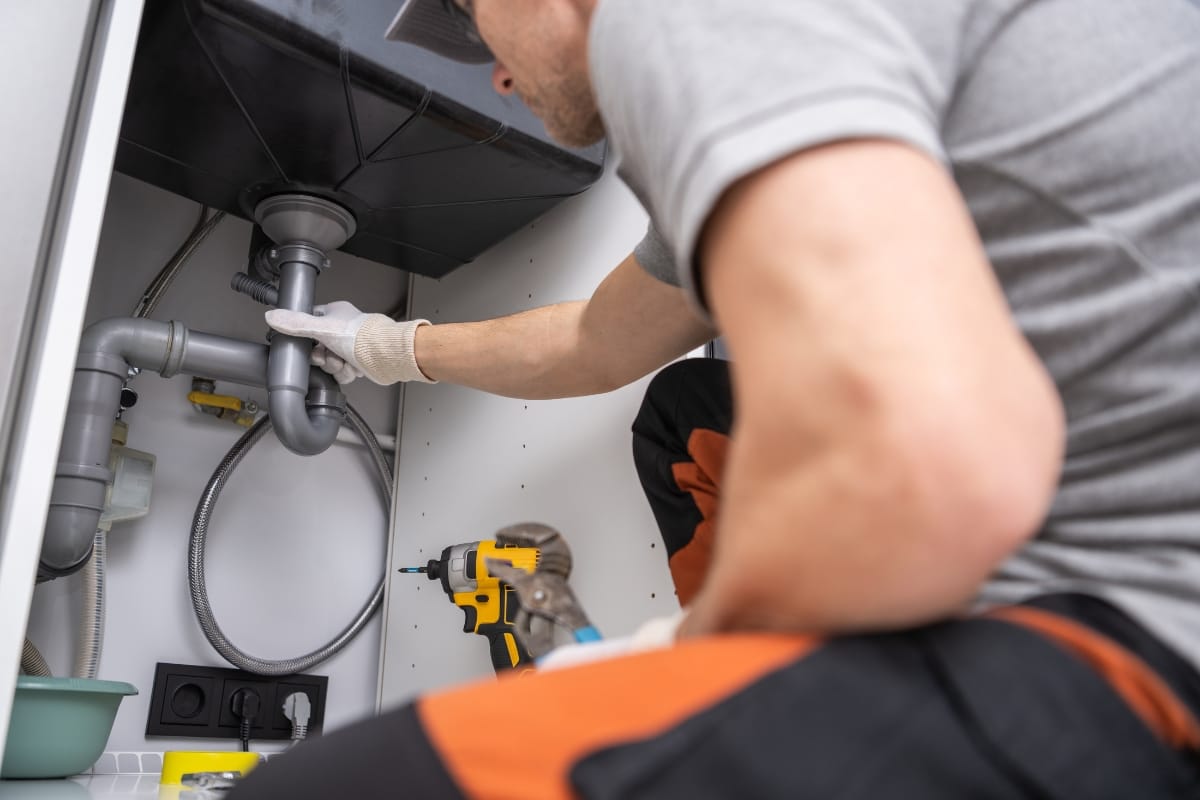
Maintaining a septic system doesn’t have to be complicated, but it does require some awareness and a bit of regular attention. By recognizing early signs of trouble and adjusting habits at home, homeowners can avoid costly repairs and keep their system running smoothly for years.
Recognizing the Warning Signs
Most septic issues don’t show up all at once. They usually start with small, easily overlooked signs that grow into larger problems if ignored. One common sign is slow-draining sinks, tubs, or toilets. This can mean the system is having trouble processing waste. Frequent backups are another red flag, especially if they occur in multiple areas of the home.
Foul odors near the tank or drain field are often a sign that untreated wastewater is surfacing. Another clue is water pooling in the yard when there hasn’t been any recent rain. If the grass around the septic area suddenly looks greener or thicker than the rest of the yard, it could be getting extra nutrients from a leaking system.
Homeowners in areas like Kennesaw should also consider how local soil and weather can affect the system. For example, heavy rains can flood a drain field, while long dry spells can cause soil to shift and damage pipes.
Smart Habits That Make a Difference
Preventing septic system problems often comes down to using it the right way. This includes limiting water waste and avoiding things that disrupt the natural bacterial balance in the tank. Installing low-flow fixtures and spacing out water-heavy activities like laundry and showers can help avoid overloading the system.
It’s also important to be careful about what goes down the drain. Wipes, grease, and harsh chemicals can clog pipes or kill off the helpful bacteria that break down waste. Using enzyme-based cleaning products is a better alternative, and putting strainers over drains can catch food scraps and other debris.
Educating everyone in the household about proper septic use is one of the most effective ways to prevent problems. A single flush of something inappropriate can do more damage than people realize, especially in older systems.
Knowing When to Call in a Professional
While homeowners can take care of basic upkeep, some issues need a professional eye. If signs like standing water, ongoing backups, or persistent smells appear, it’s time to bring in someone who can inspect the system and locate the source of the problem. Waiting too long can lead to extensive damage that’s far more expensive to fix.
Even if everything seems fine, it’s still smart to have the tank inspected every few years. These checkups can catch early wear or buildup that might go unnoticed otherwise. In areas with fluctuating weather or dense soil, inspections may need to happen more often to account for environmental stress.
By staying alert and using the system responsibly, homeowners can extend the life of their septic system and avoid most of the major problems before they start.
What Are the Environmental and Health Risks of Believing Septic System Myths?
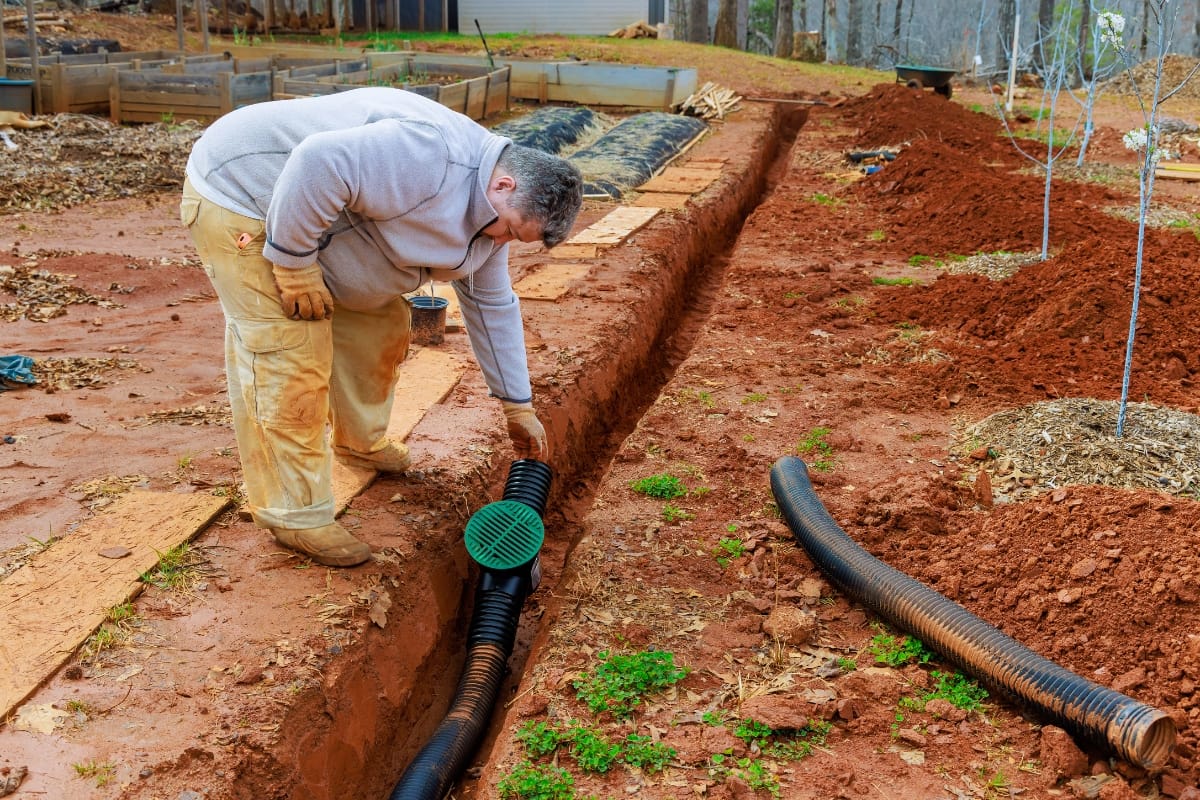
Many homeowners misunderstand how septic systems work, often due to outdated advice or common myths. Unfortunately, these misconceptions can lead to serious environmental and health risks when systems aren’t properly maintained. Failing to take routine care seriously doesn’t just impact one property. It can affect entire neighborhoods and ecosystems.
One of the most dangerous assumptions is that septic systems don’t require regular attention. Believing that a system can function indefinitely without maintenance creates a false sense of security. Over time, this neglect allows waste to accumulate beyond safe levels. When that happens, tanks overflow, drain fields get saturated, and wastewater can back up into the home or leach into surrounding soil.
In places like Kennesaw, where growing communities rely on clean water sources and reliable infrastructure, this kind of failure can have lasting effects. A compromised septic system can release untreated or partially treated waste into the ground. If this waste reaches underground water supplies or nearby creeks and lakes, it carries harmful bacteria, viruses, and chemicals along with it. These pollutants threaten both local wildlife and human health.
Once groundwater is contaminated, cleanup becomes difficult and expensive. Nitrates from wastewater can enter drinking water supplies and pose serious health risks, especially for infants and pregnant individuals. High levels of bacteria and other pathogens in recreational waters can also lead to outbreaks of gastrointestinal illness or skin infections.
Beyond the environmental damage, these problems can also have social and financial costs. Neighborhoods dealing with failing septic systems often face declining property values, strained relationships with neighbors, and higher costs to fix damage that could have been prevented. Repairs after a complete system failure often cost far more than routine maintenance would have.
Misinformation also plays a role in delaying action. Some people believe you only need to pump the tank if there’s a noticeable issue, but by the time a problem becomes obvious, it usually means the damage is already done. Others may think it’s okay to use household chemicals or flush non-degradable items, not realizing how quickly those choices disrupt the balance of bacteria that septic systems rely on to process waste.
To prevent these problems, homeowners need access to clear, practical information and should make routine septic maintenance part of their long-term home care plan. Regular inspections, scheduled pumping every few years, and responsible usage habits all go a long way in keeping systems functional and safe.
Where Can Kennesaw Homeowners Find Trusted Septic System Services and Information?
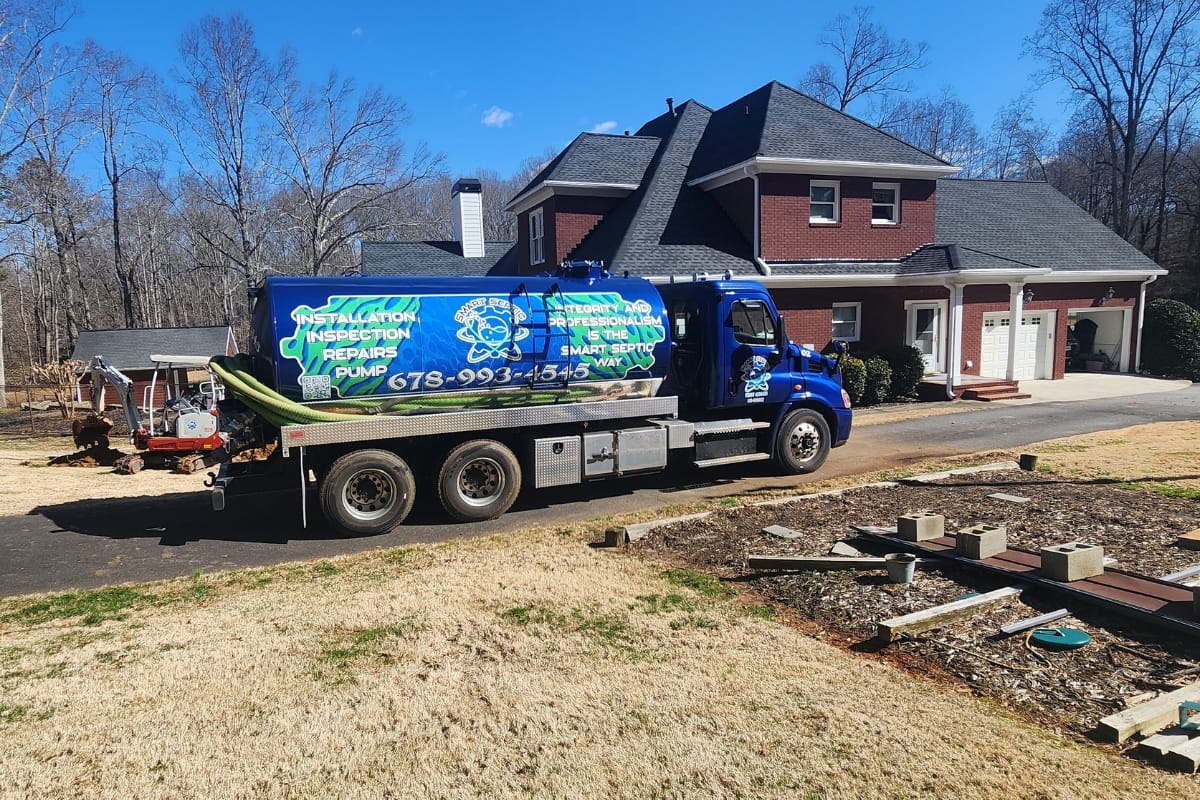
Homeowners in Kennesaw rely on well-functioning septic systems to maintain household comfort and environmental safety. To keep systems running smoothly, it’s important to work with trusted professionals and stay informed about proper care. A reliable provider offers more than just routine maintenance. They also serve as a long-term resource for navigating issues related to inspections, repairs, and overall system performance.
When looking for septic help, choosing licensed and insured professionals makes a difference. These credentials mean that the provider has met local standards and is equipped to manage both routine maintenance and complex repairs. Their familiarity with Kennesaw’s specific conditions—like soil type, seasonal weather changes, and zoning regulations—ensures that the system is designed and maintained to suit the environment.
Licensed professionals also keep detailed records of inspections, pumping schedules, and repair work. These documents can be especially helpful during real estate transactions or if you ever need to prove compliance with local environmental regulations. Whether it’s identifying small issues before they become major repairs or ensuring the system operates within legal guidelines, experienced technicians help avoid expensive mistakes.
In addition to working with skilled professionals, staying informed is a key part of responsible septic ownership. Homeowners have access to a variety of resources that can help them understand how their system works and what kind of maintenance it requires. Local agencies, environmental organizations, and university extension services often provide workshops, brochures, and online guides tailored to Georgia’s climate and conditions. These materials cover everything from basic maintenance routines to more detailed insights on managing high-use systems or preparing for weather-related stress.
Joining local homeowner forums or reading regionally focused newsletters can also be a helpful way to keep up with trends, tips, and new technologies. Learning from the experiences of others in your area often provides practical, real-world advice that you might not find in generic guides. Being part of a well-informed community creates opportunities to ask questions, share resources, and build confidence in managing your own system.
Another important factor in choosing a septic provider is pricing transparency. Homeowners need to know what to expect when scheduling services like tank pumping, inspections, or repairs. A good provider outlines the costs clearly and avoids hidden fees, helping homeowners make informed decisions based on their budget. Transparent pricing builds trust and ensures that maintenance isn’t delayed because of unexpected charges.
Septic system upkeep requires more than just occasional attention. It’s a long-term responsibility that involves regular care, reliable service, and staying educated. In Kennesaw, homeowners can protect their property and the environment by partnering with experienced professionals and using trusted local resources. The result is a system that performs well for years and offers peace of mind through every season.
Frequently Asked Questions
How often should a septic system be pumped? Most residential systems need pumping every three to five years. However, factors like household size, water usage, and the soil conditions around your property can influence how often it should be done. Homes with heavy use or challenging drain fields may require more frequent pumping to keep everything working properly.
What are the early signs that a septic system is failing? Some of the first warning signs include slow drains, gurgling sounds in your plumbing, unpleasant odors near the tank or drain field, and water pooling in areas where it shouldn’t be. If you notice any of these, it’s important to address them quickly to avoid more serious and expensive problems.
Can homeowners maintain their septic systems on their own? While you can take steps to reduce strain on your system, like conserving water and avoiding harsh chemicals, the more technical parts of maintenance should be handled by professionals. Pumping the tank, inspecting the drain field, and making repairs are jobs that require proper training and equipment. DIY work can sometimes create bigger issues or miss important warning signs.
How does soil type in Kennesaw affect septic system performance?Soil composition plays a big role in how well your system works. Sandy soil allows water to drain too quickly, reducing the time needed for proper treatment. Clay-heavy soil drains too slowly, which can cause backups or pooling on the surface. Both situations require careful design and regular oversight to prevent system failure.
Where can Kennesaw homeowners find dependable information about septic care? County extension offices, environmental health departments, and local wastewater professionals are all good sources of reliable information. Look for resources tailored to Georgia’s specific conditions, including how to maintain your system in different seasons and soil types.
Do newer septic technologies eliminate the need for maintenance? Modern systems, such as aerobic treatment units or advanced filtration setups, can improve efficiency and reduce certain risks. But no system is entirely hands-off. All types still need regular inspections, pumping, and proper usage to stay in good working order. Ignoring maintenance can lead to the same issues found in older systems.
What environmental problems can result from a neglected septic system? A system that isn’t maintained properly can leak untreated or partially treated wastewater into the ground or nearby bodies of water. This can introduce harmful bacteria, chemicals, and nutrients that damage local ecosystems and contaminate drinking water. Preventative care is not just about keeping your home running smoothly—it also helps protect public health and the environment in your community.
Final Thoughts
Don’t let outdated beliefs about septic systems lead you astray—proper care, timely inspections, and professional guidance are the real keys to a trouble-free system in Kennesaw. When you’re ready to separate fact from fiction and keep your septic working at its best, trust the septic services experts at Smart Septic Pros. Give us a call at 678-993-4545 or visit our website to fill out our contact form and get personalized solutions today!
